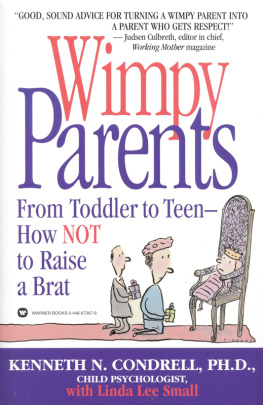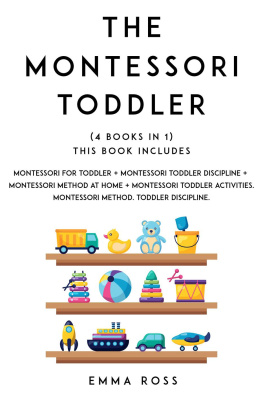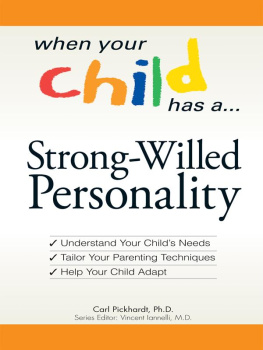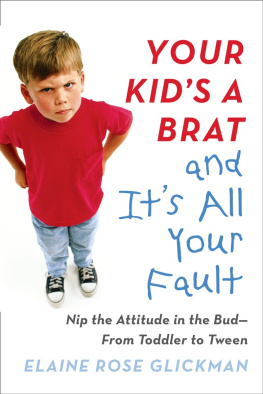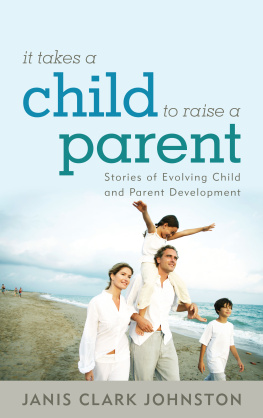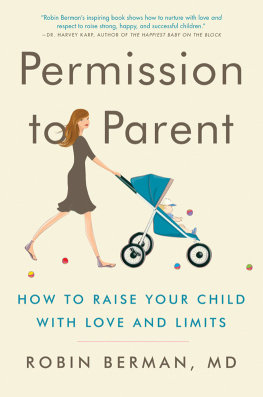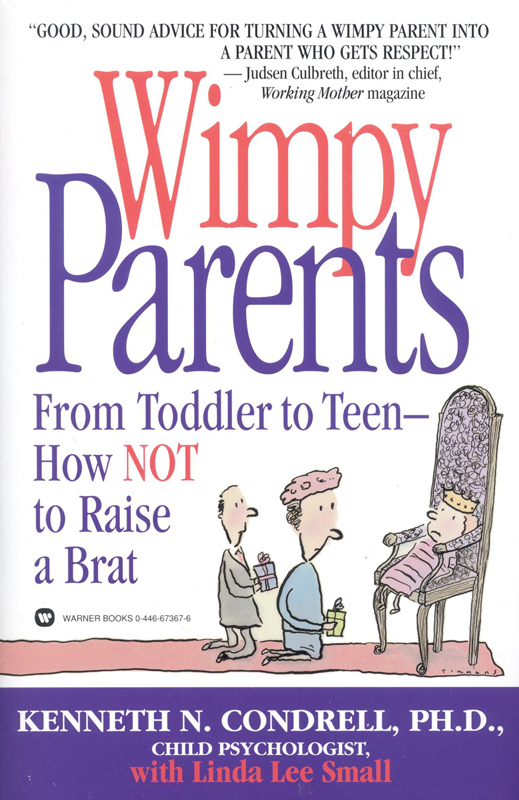Copyright 1998 by Kenneth N. Condrell, Ph.D., and Linda Lee Small
All rights reserved.
Hachette Book Group, 237 Park Avenue, New York, NY 10017
Visit our Web site at www.HachetteBookGroup.com
First eBook Edition: June 1998
ISBN: 978-0-446-55646-0
The Warner Books name and logo are trademarks of Hachette Book Group, Inc.
Cover design by Elaine Groh
Cover illustration by Bonnie Timmons
YOUVE TRIED THE WIMPY WAY.
NOW TRY A BETTER WAY
AT BEDTIME
THE WIMPY WAY: When your two-year-old resists bedtime, you let him stay up and even take him to bed with you.
A BETTER WAY: You set a definite bedtime and make it a pleasant routine. You then place your toddler in his own bed and ride out any fussing with brief, reassuring visits. You are always careful not to turn your visits into a time of games and snacks.
AT DINNERTIME
THE WIMPY WAY: Almost every evening your eight-year-old gags at the sight of what you have prepared for dinner. You beg, scold, and threaten, then finally make him his favorite grilled cheese sandwich.
A BETTER WAY: A couple of times a week you cook your childs favorite dinner. In between these special days it is up to him to eat or not. When a timer goes off after twenty minutes, mealtime is over until breakfast.
WITH AN UNCOOPERATIVE CHILD
THE WIMPY WAY: Your twelve-year-old demands whatever he wants but becomes indignant when you want something from him. You yell, scream, and finally do the chores yourselfand still give in to his demands.
A BETTER WAY: You inform your twelve-year-old that life is a two-way street and stop all favors for a week. After he starts helping out, you respond to his requests.
American parents need this challenge to be loving and consistent in a time of violence and boundary infringement. Condrell and Smalls contribution is a must-read. It will benefit parents and children of all ages, guiding them in practical steps with loving humor and wisdom.
Dr. Judith Landau, University of Rochester, Division of Family Programs
This book is dedicated to my grandparents, Louie and Evdoxia Liakeas, who gave me an extraordinary childhood filled with love and adventure.
For many years, this book has been in my head but it was Agnes Birnbaum of Bleecker Street Associates who made it happen when she enthusiastically brought my ideas to the attention of Warner Books.
Communicating on paper what you have learned and what you believe in can be an incredibly challenging experience. Fortunately I had the good luck and pleasure of working with a terrific writer, Linda Lee Small. Her expertise with words and her sensitivity as a parent plus her bright, positive nature made the writing of this book a great experience.
Special thanks go to Colleen Kapklein. Colleen was always available for helpful discussions and kept all of us on schedule. I also want to thank Adaya Henis, Mari C. Okuda, and the entire staff of Warner Books for their efforts in making Wimpy Parents a reality.
What Is Wimpy Parenting?
O ver the years, as a practicing family therapist and child psychologist, I have found myself spending more and more time counseling parents whose children were running them. In the 1980s I began to use the phrase wimpy parenting to refer to this parenting style. When I gave parent talks, audiences laughed when they first heard this expression. I would explain that wimpy parents are really nice people. I began to talk about the wimpy parent syndrome: There seemed to be an epidemic of parents who had lost control over their children. I began to see more clearly how parents were getting themselves into the trap of wimpy parenting, and finally I was developing strategies to help parents reclaim their rightful authority to be the leader, the boss, of their family.
What impressed me about the wimpy parent syndrome was that wimpy parents were often incredibly competent people. I recall saying to one father, You are a veteran of the Vietnam War, and yet you let your four-year-old walk all over you. That got his attention.
I also vividly recall a single-parent mom who was the host of a popular TV program. Professionally she was at the top of her game, but as a mom she was a wimp. In fact, she was ready to call off her forthcoming marriage when I first met her. Despite the fact that she had found the man of her dreams, she actually considered breaking her engagement because her four-year-old cried and said, Mommy, I dont want you to get married. Mom was worried that forcing a stepfather on her child would really hurt her. I explained that most children who had lived for a long time alone with their mom would not like the idea of sharing her with another person. More importantly, I noted, she would be doing a good thing for her daughter by providing her with a two-parent home, since the childs father had disappeared long ago.
Fired up by my advice, this mom agreed to have a family counseling session that included her fiance and her daughter. During this session the mom and her fianc did what I had coached them to do: They lovingly but firmly told the girl, We love each other very much, and we are going to get married and be a family. We also love you, and we are going to make sure you have plenty of time with each of us. Within a week this little girl had adjusted to the idea of Mom getting married, because Mom stopped being wimpy and didnt give in to an unreasonable request.
Wimpy parents are loving, well-intentioned parents who continually struggle to get their children to listen to them. They are dedicated parents and will, in fact, knock themselves out for their children. They expect their children to appreciate their efforts but find that their children give them a hard time: Instead of cooperating, their children confront them with arguments. Instead of respecting a no, their children continue to do what they have been told not to. Instead of being satisfied and grateful for all the special services and goodies they have received, these children demand more of everything.
Parents who have fallen into the wimpy parent trap express disbelief and confusion. They never would have dared to treat their own parents the way they are being treated. Many wimpy parents see themselves as much more involved with their children than their parents were with them. It seems only logical that their own children should be falling over themselves to please them instead of being so difficult.
In the last twenty years I have seen a steady increase in the number of parents falling into the wimpy parent trap. Particularly within the last few years, the problem has become so commonplace that I spend most of my professional time putting parents back in charge of their children. Im helping some parents to be in charge of their children for the first time.
I was educated as a child psychologist in the 1960s. In the 1970s and 1980s I parented my own children. Now in the 1990s I watch too many children talk back to their parents, call them names like butt head, use four-letter words without a sense of wrongdoing, refuse to help out at home or to do their homework, and argue with their teachers when they are corrected. Is it any wonder that in recent surveys more and more parents are claiming they would not choose to be parents if they had to do it over again?
Parenting styles and educational practices have gone through tremendous change. Experts promised parents that their new ideas would result in more self-confident and better-educated children. But all this change and experimentation has resulted in more brats, more frustrated parents, more poor students, and more unhappy teachers.

